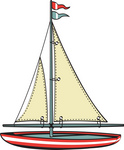Sloop wrote:PST, you make a decent argument in favor of Obamacare, but you don't address the damage that ObamaCare is doing to the business world -- to companies that are too scared to hire any more employees for fear of the unknown. There are trillions of dollars that right now are simply sitting on the sidelines waiting for some sanity from Washington before this money will be put in play. I would put to you that a large part of the blame for this stagnation of our economy is because of this uncertainty.
Speaking as an employer, I don't think decisions to hire have the slightest thing to do with uncertainty about ObamaCare. It has nothing to do planning at my firm, that's for sure. Businesses will hire more employees when demand for their products and services are higher and they can make a profit by mobilizing more workers. New employees will not be hired until they are needed to meet demand, pure and simple. There was a huge reduction in demand beginning in 2008. To oversimplify, when house prices crashed, we all felt poorer, and we stopped spending so much money. This became self-perpetuating as lower spending begat more lost jobs which begat even lower spending (rinse and repeat). I agree that trillions of dollars are sitting on the sidelines, that is why interest rates are so remarkably low, but we need an increase in aggregate demand if we want jobs to expand more rapidly. The stimulus program helped, but it was less than it should have been, although probably as much as political reality allowed. and it was offset by states shedding employees at a rapid pace. Of course, Paul Krugman is like a god to me, so I would believe these things. In any event, businesses are good at handling risk, and investors act in the face of uncertainty all the time, but no one hires if there isn't enough for new workers to do.
As I understand today's ruling with re to Medicade, there will be millions of Americans who were supposed to qualify for the "expanded Medicade", i.e., they make too much in earnings to be put under the standard Medicade, but now the states will NOT be obligated to provide Medicade to this group. This was the group that also was used to a large degree in originally selling the program. So now (or beginning in 2014), these folks will be obligated to purchase their own healthcare, with no government assistance, or suffer a penalty on their tax returns from the IRS. Such a deal.
The Medicaid program is administered by the states and has a hodge-podge of eligibility requirements. The states administer the program, with quite different rules, and the federal government pays much of the cost. Participation is voluntary, but no state says no. One important part of the PPACA was to set a uniform eligibility requirement of 133 percent of the federal poverty level (FPL). That's about $31,000 for a family of four. This change would increase the cost of Medicaid, and the federal government would bear 100 percent of the increased cost at first, although the percentage would eventually decline to 90 percent. Participation in the new, expanded program is likewise voluntary, but of course the states don't get the money unless they play by the new rules. All the Supreme Court said today was that the federal government can't take away its financing of old Medicare from a state that refuses to go along with the expansion. Seven justices agreed with this, including liberals Breyer and Kagan. Personally, I think that when the dust settles, no state will actually pass on this. The deal is too good to say no to. Moreover, the participation or non-participation of states in the expansion of Medicare does not affect the federal government's subsidy of the purchase of insurance on the new insurance exchanges. This subsidy kicks in to prevent anyone from being forced to spend more than 2 percent of their income on health insurance if they are at 133 percent of FPL or below. I actually don't think the mandate applies at 133 percent or below, but I can't remember, and I'm getting too tired of the subject to look it up. I may retire from the fray.















